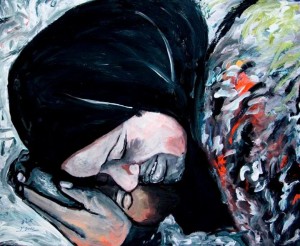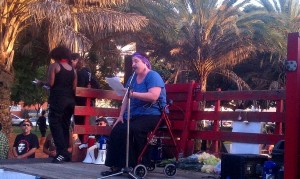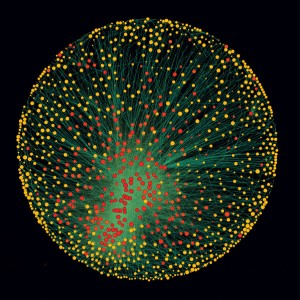Don’t Play Apartheid Israel Is In Solidarity With the Lebanese Boycott
The rock band Placebo played Israel then Lebanon in June 2010. In an interview in Israel, lead singer Brian Molko insulted Gaza flotilla participants who were assaulted and nine people murdered by Israel the previous week. The interviewer commented “It’s important to have Israel’s endorsement these days.” Molko responded with a casual laugh: “I think so… especially if you want to go sailing.”
Molko’s reprehensible comment came at a time when many Israelis were celebrating this massacre whilst berating and humiliating the survivors who were incarcerated in Israel. The Pixies had previously cancelled their Israel gig only weeks before in response to the Palestinian call to boycott, yet Molko joked, implying that one needs to be on the side of Israel and support its multiple breaches of international humanitarian law to remain safe. Until Placebo releases a statement in support of BDS and condemns Israel’s attack on the flotilla, DPAI feels strongly that Molko’s comments can only be considered as condoning Israel’s crimes.
While PACBI has not yet endorsed a boycott of any artist or group for breaching the boycott guidelines, in Lebanon, as indeed in all Arab countries, the considerations are entirely different than in the rest of the world.
Palestinians belong to the Arab world (regardless of many issues about what Arabism means and the categorical need for full equality of minorities and for a civic, not ethnic, state), and this makes Arab-Israeli relations subject to the normalization guidelines, not just the Guidelines for the International Cultural Boycott of Israel.
Arab countries, and especially Lebanon, Syria, Jordan and Egypt, are an integral and internal part of the colonial conflict, not outsiders whom Palestinians ask for effective solidarity.
Now targeted by a legal suit against them, Lebanese activists have based their boycott of Placebo on their own legitimate criteria and DPAI supports their actions. The attempt to prosecute Lebanese groups who called for a boycott of Placebo is likely inspired by the anti-democratic anti-boycott law passed this year in Israel’s Knesset which is aimed at countering the BDS campaign and protecting Israeli apartheid from censure by Israelis and internationals who support BDS.
We reject any argument that the Lebanese boycott of Placebo is unlawful and stand in solidarity with the Lebanese boycott groups’ campaign. Please show your support also by signing up to their actions below.
DON’T PLAY APARTHEID ISRAEL
We are a group, of 780 members, representing many nations around the globe, who believe that it is essential for musicians & other artists to heed the call of the PACBI, and join in the boycott of Israel. This is essential in order to work towards justice for the Palestinian people under occupation, and also in refugee camps and in the diaspora throughout the world.
………………………………………………………………………………………………………………………
The following call comes from the Green Resistance blog. It is published on the website of the Lebanese Campaign for the Boycott of Zionism.
Samah Idriss, director of Dar al-Adab publishing house, received a court summons [recently] from Beirut’s commerce court. Idriss is implicated in a lawsuit for his involvement in a Lebanese boycott campaign against the British rock group Placebo last year. Jihad el-Murr, who heads the company that organized the event, filed the suit on 10 July 2011.
El-Murr is suing Idriss, as well as three other groups involved in the campaign: the Aidoun Refugee Rights Center, the Campaign to Boycott the Supporters of Israel in Lebanon, and the Global BDS Campaign in Lebanon. El-Murr, a self-described famous businessman from a prominent family, is demanding US$180,000 compensation for his company’s financial losses allegedly caused by the boycott campaign.
Jihad el Murr is suing these four organizations/campaigns on the grounds that, because we called for the boycott of Placebo’s concert in Lebanon because they had just performed in Israel, we are thus financially responsible for the smaller turnout at this 2010 concert than the number that went to the 2004 Placebo concert in Lebanon. The lawsuit may have been inspired by the recent anti-boycott law passed by Knesset – which can hold individuals/organizations that call for boycott to be financially responsible for any losses endured by a company/other even without that company proving that the statements have resulted in the loss. The lawsuit may also have been inspired by potential future plans by Jihad el Murr. Either way, the intent is clear: to silence the boycott movement, and to muzzle free speech.
So:
Are you opposed to this anti-boycott lawsuit? –
Are you opposed to this attempt to stifle free expression?
If so, please read the statement below.
We, the undersigned, attest that we are members of the Boycott, Divestment and Sanctions movement. We attest that, consequently, we are defendants in the lawsuit against us by To You To See, represented by its manager Mr. Jihad Al-Murr, on the basis of our support for the boycott of the Placebo concert in June 2010 due to Placebo’s insistence on performing in Israel on the eve of the massacre against the Freedom Flotilla.
We, the undersigned, further declare our full stance in solidarity in the defense against this lawsuit. We shall regard this lawsuit as another platform and a new opportunity to consecrate our campaign to boycott supporters of zionist oppression and racism, and to emphasize our right to express what we see as just in the pursuit of this human right. We also stand in solidarity with all the other defendants in this case, including Samah Idriss of the Al-Adab magazine, the Refugee Rights Center – Aidoun, and the Campaign to Boycott Supporters of Israel in Lebanon.
Sometimes the justice system is used to oppress free voices and to strengthen certain power structures. In this lawsuit,the justice system shall be first and foremost a platform to empower the values of justice and freedom in resisting injustice and oppression.
Thank You.
Related Links
Stand in Solidarity with Lebanese BDS activists
Interview: Why is concert promoter suing Lebanon boycott activists?









